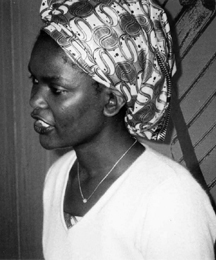 I just read from James Murua’s Literature blog that Conakry, Guinea, was made the World Book Capital for 2017, news that James got to know a few minutes ago, but the decision was in fact made by a committee of experts on 30 June. Like James, this is fresh news to me so I’m posting in case it’s news for several others as well.
I just read from James Murua’s Literature blog that Conakry, Guinea, was made the World Book Capital for 2017, news that James got to know a few minutes ago, but the decision was in fact made by a committee of experts on 30 June. Like James, this is fresh news to me so I’m posting in case it’s news for several others as well.
The selection committee singled out the Guinea capital city “on account of the quality and diversity of its programme, in particular its focus on community involvement” as well as “for its well-structured budget and clear development goals with a strong emphasis on youth and literacy”.
I’m curious about what’s going on book-wise since I haven’t been following Guinea events. I’m also wondering what this new status will do for the book industry. The article doesn’t mention activities or accomplishments that will be achieved so we simply have to watch the space. In 2014 when Port Harcourt in Nigeria was the World Book Capital, we saw the publication and launch of Africa 39–something tangible–and a literary festival. Guinea produced Camara Laye—The African Child/The Dark Child/L’Enfant noir, 1953, and The Radiance of the King, 1954, books most of us can claim raised us. Or as we like to say, “we grew up on.” How do you grow up on a book? Jokes aside, I know a writer who so loved Camara Laye’s work that she went ahead and begot a son and named him Camara. Laye’s novels are among the earliest major works in Francophone African literature. We also have Djibril Tamsir Niane, who introduced to us The Epic of Sundiata, a story told to him by Djeli Mamoudou Kouyate, a griot in the Mandinka tradition. Other writers from Guinea include Tierno Monénembo, Saïdou Bokoum, Koumanthio Zeinab Diallo, Fodéba Keïta, Siré Komara, and Williams Sassine. Besides great writers, Guinea continues to produce some of the finest soccer players.




3 thoughts on “Conakry, Guinea is World Book Capital for 2017”
Well put, Mildred, and I do hope that Conakry will not disappoint, though, indeed, I’ve not heard much about literary things happening there. Could this be because of the language divide- Anglophone VS Francophone? And thanks for the info on other Guinean writers. To be honest, I only knew about Camara Laye- that’s about it.
I think language has a lot to do with it. Without translations playing a big role Anglophone only or Francophone only books can’t really cross borders that much.
This is good news. What would be the role of African Writers Trust for its members?